US state Missouri wants to eliminate marriages for everyone unless they’re done in a church
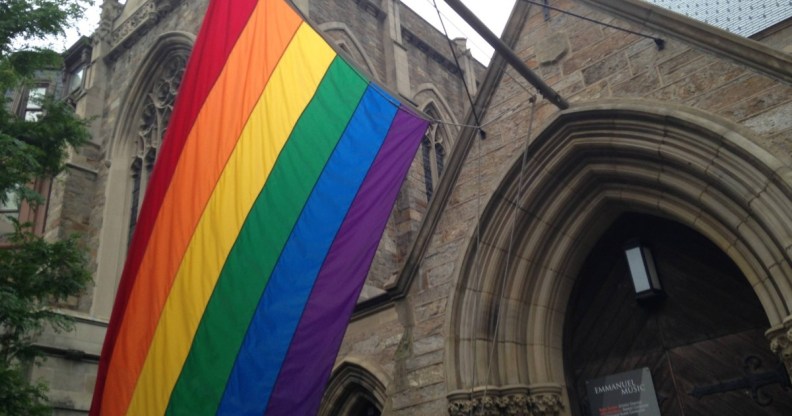
The Missouri GOP legislature has introduced a bill which hopes to stop marriages that don’t take place in a church.
As part of an ongoing effort in the state to redefine marriage, HB 1434 would nullify marriage in the public arena.
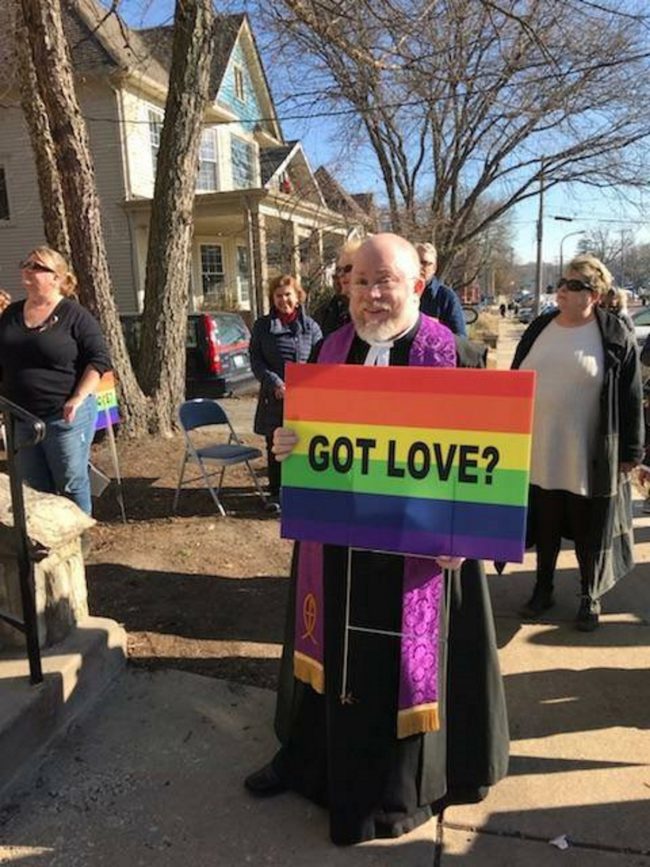
(Facebook/First Congregational Church of Geneva, United Church of Christ)
It would define marriage as being a union that takes place only in religious institutions.
Any marriages that were to take place outside of the church, for example in a registry office, would only be recognised as “domestic unions”.
Sponsors of the bill say that the change in definition would work to protect churched and businesses against “gay encroachment”.
The bill stemmed from a slew of religious exemption cases – the most common of which being bakers who refuse to bake wedding cakes for same-sex marriages.
Missouri still has an unconstitutional law in its state legislature which defines marriage as a union between a man and a woman.
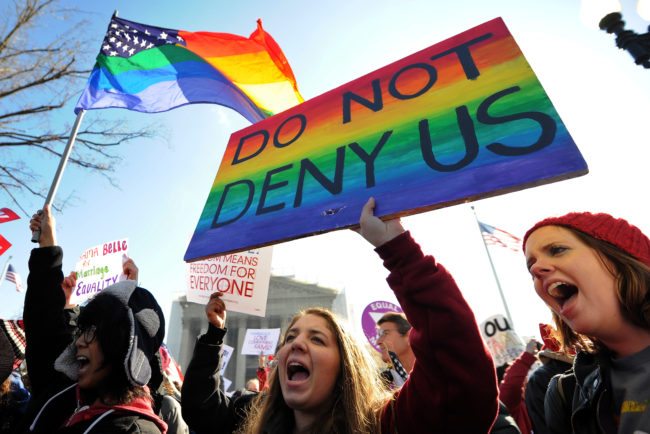
Same-sex marriage supporters shout slogans in front of the US Supreme Court (Photo by JEWEL SAMAD/AFP/Getty Images)
Those who support the bill say it is a reaction to Obergefell v. Hodges, the Supreme Court case which legalised marriage equality in America.
If the bill were to pass, it would mean that both gay and straight married couples would have to reclassify themselves as “domestically unionised”.
This would have a massive knock-on effect on marriage tax credits and other bureaucratic processes.
Similar bills have been sponsored by the same sponsor of HB 1434, Rev./Rep. TJ Berry.
The two bills failed in the last two years, and we’re hoping this bill will follow suit.
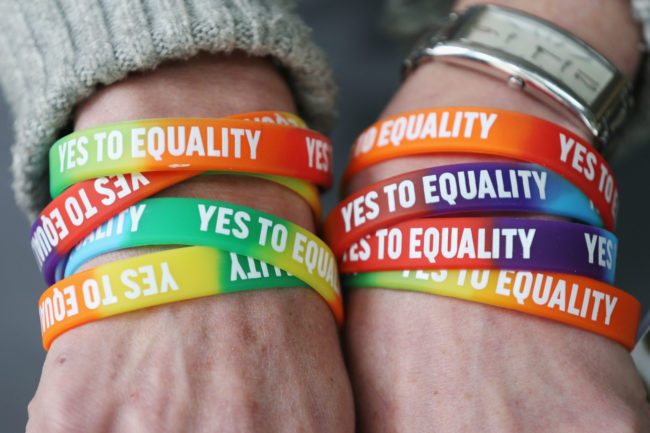
MELBOURNE, AUSTRALIA – SEPTEMBER 07: Marriage equality advocates show their support after the High Court delivered their n favour of having a same sex marriage postal vote on September 7, 2017 in Melbourne, Australia. (Photo by Michael Dodge/Getty Images)
The Supreme Court ruled earlier this week that Mississippi could keep an anti-LGBT law in its legislature.
The Republican-dominated state recently passed HB 1523, a broad law which grants Mississippians the ability to use so-called “religious exemptions” to legally deny LGBTQ people employment, housing, adoption rights, marriage licenses, and even services at a local business.
Despite protests from LGBT rights groups, the sweeping law was signed by the state’s Governor Phil Bryant, and came into effect in October.
A legal challenge to the law was rejected by the 5th U.S. Circuit Court of Appeals, which ruled that the plaintiffs in the case – including same-sex couples and civil rights advocates – did not have standing to challenge the law.
The US Supreme Court only takes up a fraction of cases put before it, but the decision to avoid intervening in the case has sparked concern.
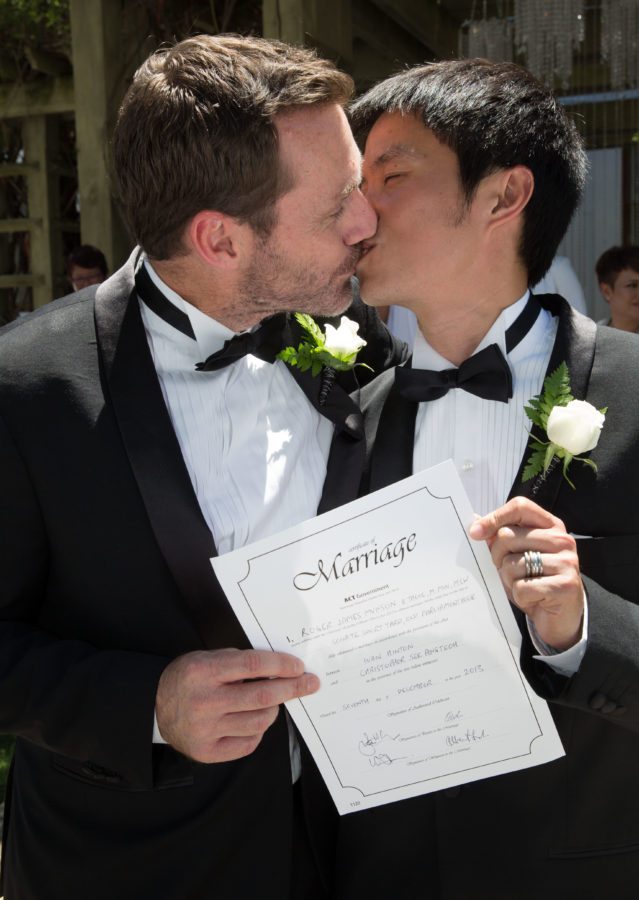
A newly married couple in 2013, before the Australian High Court struck down a law which allowed them to wed (Getty)
Sarah Kate Ellis, President and CEO of GLAAD, said: “This latest punt on LGBTQ rights by the nation’s highest court promotes state-stationed discrimination by upholding a law that allows hotels, ER doctors, business owners, and even paediatricians to legally deny services to hardworking LGBTQ families in Mississippi.
“While freedom of religion is a fundamental right, it should never give people the right to impose their belief on others and openly discriminate against others in the name of religious exemptions.”
The law’s passage comes despite research from the Public Religion Research Institute (PRRI) which showed that a majority of Americans oppose anti-LGBTQ legislation.
The polling revealed that more than six in ten (61%) Americans oppose allowing small business owners to refuse to provide products or services to gay or lesbian people. Just three in ten (30%) Americans support their right to do so.

